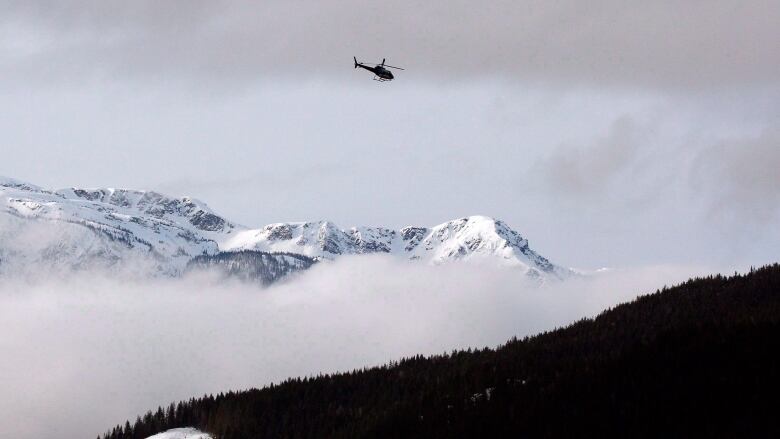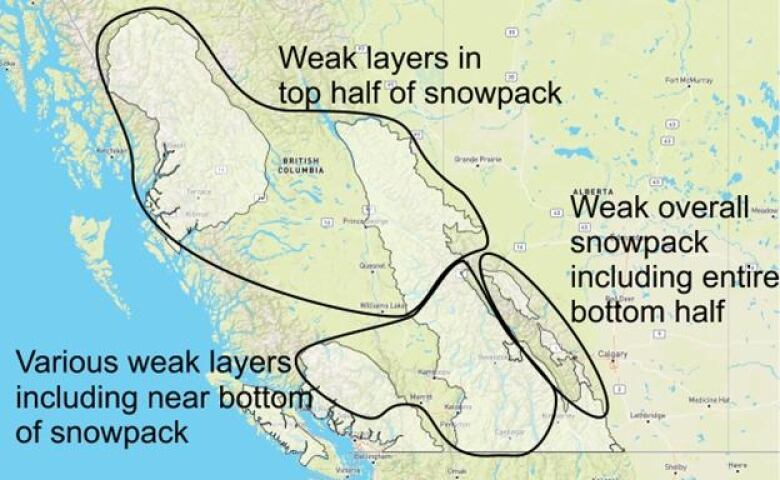Forecaster warns of potential for severe avalanche season in B.C.
Avalanche Canada says long periods of drought and cold have created weak layers of snow

Avalanche Canada is warning that B.C.'s snowpack this year is unusually weak and will be more vulnerable to avalanches.
The organization sayspeople who seek recreation in backcountry areasshould beextremelycareful in the interior, the coastal interior, and northwestern regions of the province.
Avalanche forecaster Mike Conlan says the weak snowpack seen this year in Western Canada only occurs once every 10 to 20 years.
"This sort of snowpack setup is not very common . . the last time we saw a snowpack of this magnitude, many professionals are reaching back to 2003," he said.
Avalanche Canada says 2003 was one of the worst years on record for fatalities caused by avalanches.
In January of that year, Craig Kelly, one of the best professional snowboarders at the time, was one of seven people killed in an avalanche on the Durrand Glacier near Revelstoke.
InFebruary, seven high school students died after being caught in an avalanche in southeastern B.C.

This season, lengthy periods of drought and cold weather starting in November created weak layers in the snowpack, according to Conlan.
The precipitation and snow that followed over the last few weeks stressed theflimsylayers below.
"There is potential that the stress of this new snow could overcome the strength of the weak layers and we could get natural releases," said Conlan.
Conlan says the weak snow could persist for months, if not the whole season.
"What backcountry users need to do is to practice patience and discipline with their terrain travel to make sure they are staying out of high consequence areas," said Conlan.
Conlan said there have not been any fatalities yet, although there have been numerous injuries from human-triggered avalanches and people who narrowly missed being caught in large avalanches.
"There still are safe areas that users can go, but you need to make sure that you understand all the avalanche terrain around you."
Stressed SAR
Prince George Search and Rescue (PGSAR) says it ispreparing for what may be anunusual and dangerous season.
"We're seeing some interesting snowpacks being developed and we echo [Avalanche Canada's] concerns fully," said manager Dave Merritt."It's got a lot of SAR teams stressed out right now."
Merritt says the PGSAR team it isensuring itisproperly staffed and trained, and outfitted with gear. He said he hasn't seen a season like this in a long time.
"We're seeing things moving a little easier than they should."
Merrittadvises those heading into the backcountryto be prepared by takingavalanche training,leavinga trip plan, and checking Avalanche Canada's bulletin before heading out.
"We're reminding people maybe dial it back a little bit. Have fun but maybe not hit the big slopes or the steep terrain."
Watch | Expert advice on avalanche safety in B.C.'s backcountry:













_(720p).jpg)


 OFFICIAL HD MUSIC VIDEO.jpg)
.jpg)



























































































